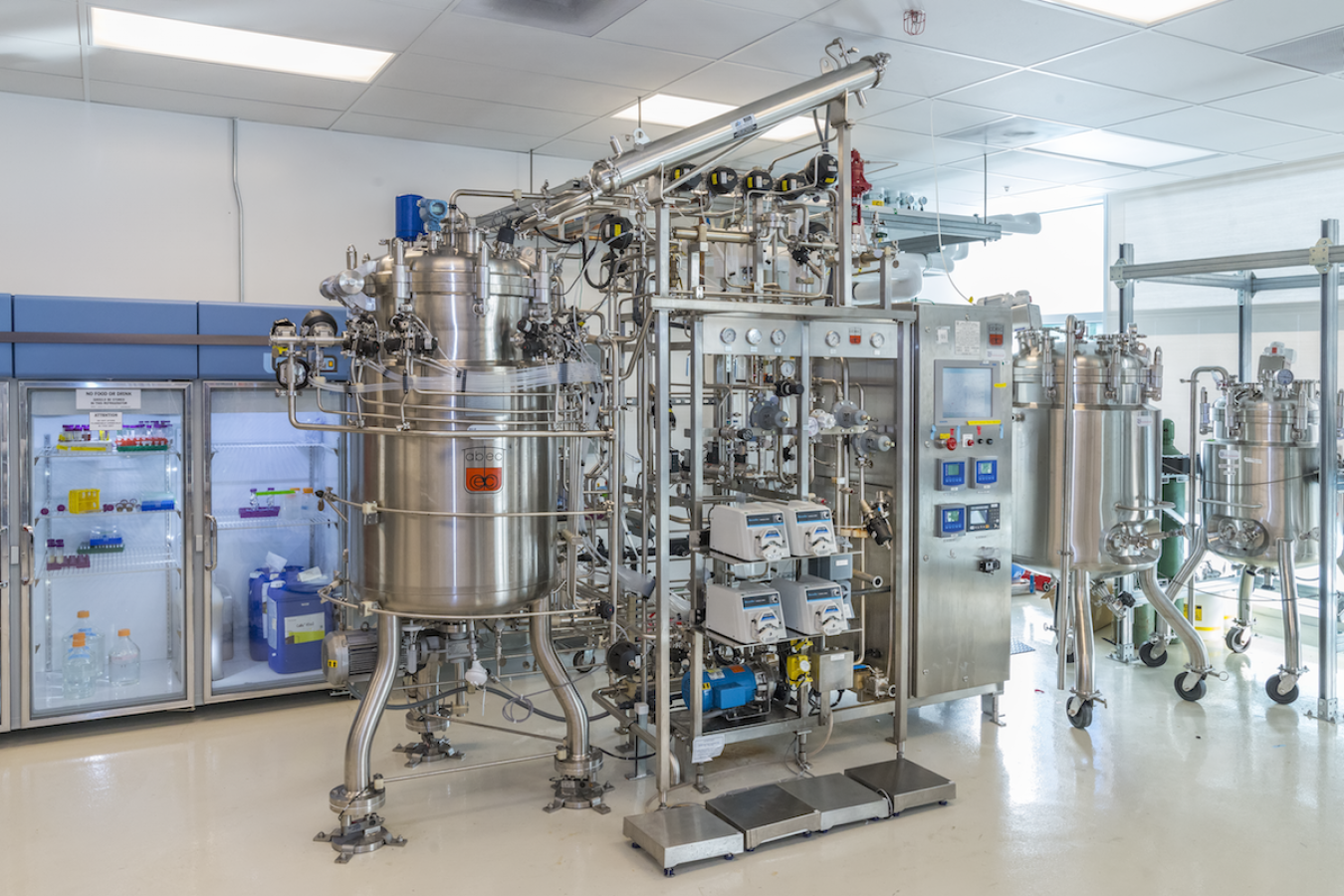
Fermenter used in the scale-up of malonic acid. Credit: Roy Kaltschmidt/Berkeley Lab
A new manufacturing technology for producing malonic acid is now possible as a result of Lygos, Inc.’s breakthrough pilot program at the U.S. Department of Energy’s (DOE’s) Advanced Biofuels Process Demonstration Unit (ABPDU) at Lawrence Berkeley National Laboratory.
Malonic acid is a chemical that is used in a wide variety of products, from pharmaceuticals to cosmetics. Previously, production was environmentally hazardous and expensive, but the new process produces malonic acid from biomass sugar, removing the petroleum, while also decreasing CO2 emissions and eliminating toxic inputs.
The new biomass sugar-derived process is also cost-effective, which makes large-scale manufacturing possible as this technology moves forward with commercialization. Malonic acid’s potential was documented ten years ago with the release of DOE’s report that identified this compound as one of the top 30 valued chemicals to be produced from biomass-derived sugar.
The Bioenergy Technologies Office (BETO) works with a broad spectrum of industrial, academic, agricultural, and nonprofit partners across the United States to develop and deploy commercially viable, high-performance biofuels, bioproducts, and biopower from renewable biomass resources in America to reduce our dependence on imported oil.
The Office of Energy Efficiency and Renewable Energy (EERE) success stories highlight the positive impact of its work with businesses, industry partners, universities, research labs, and other entities.
